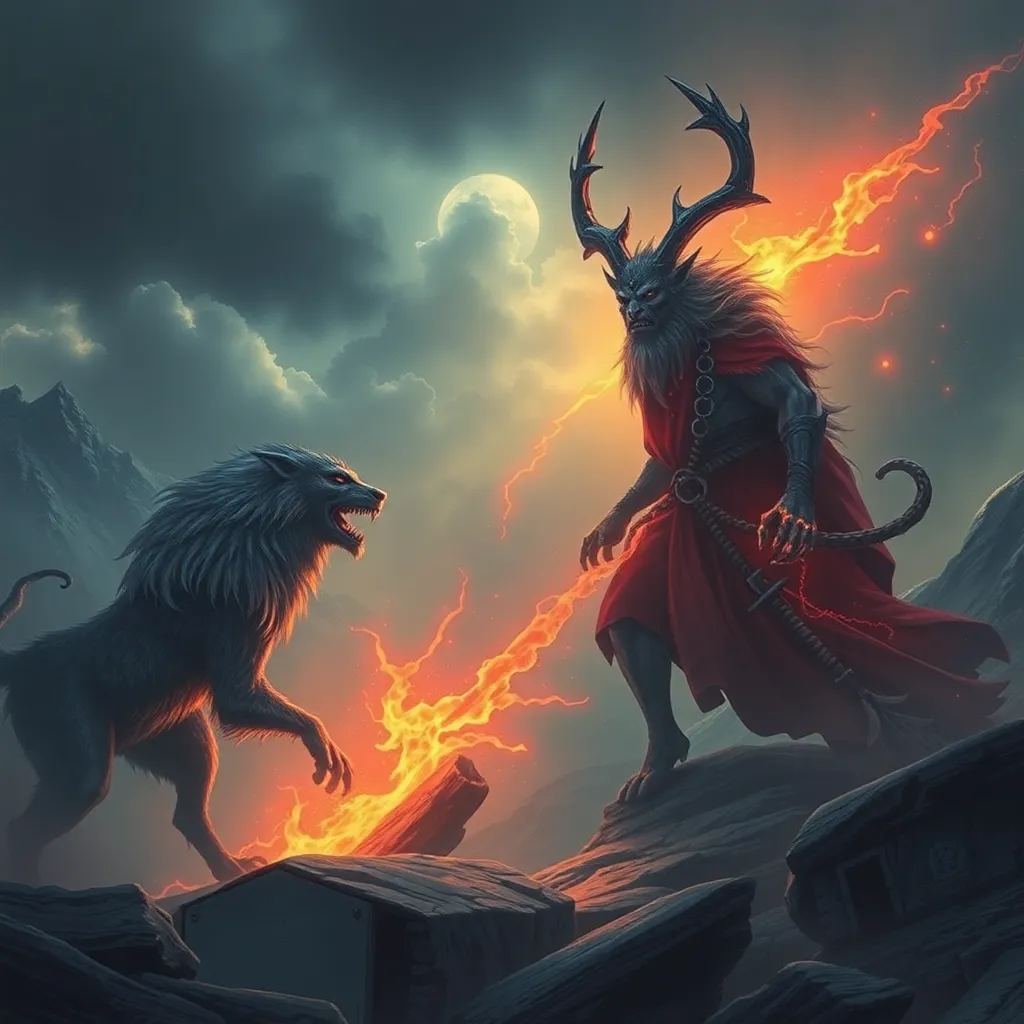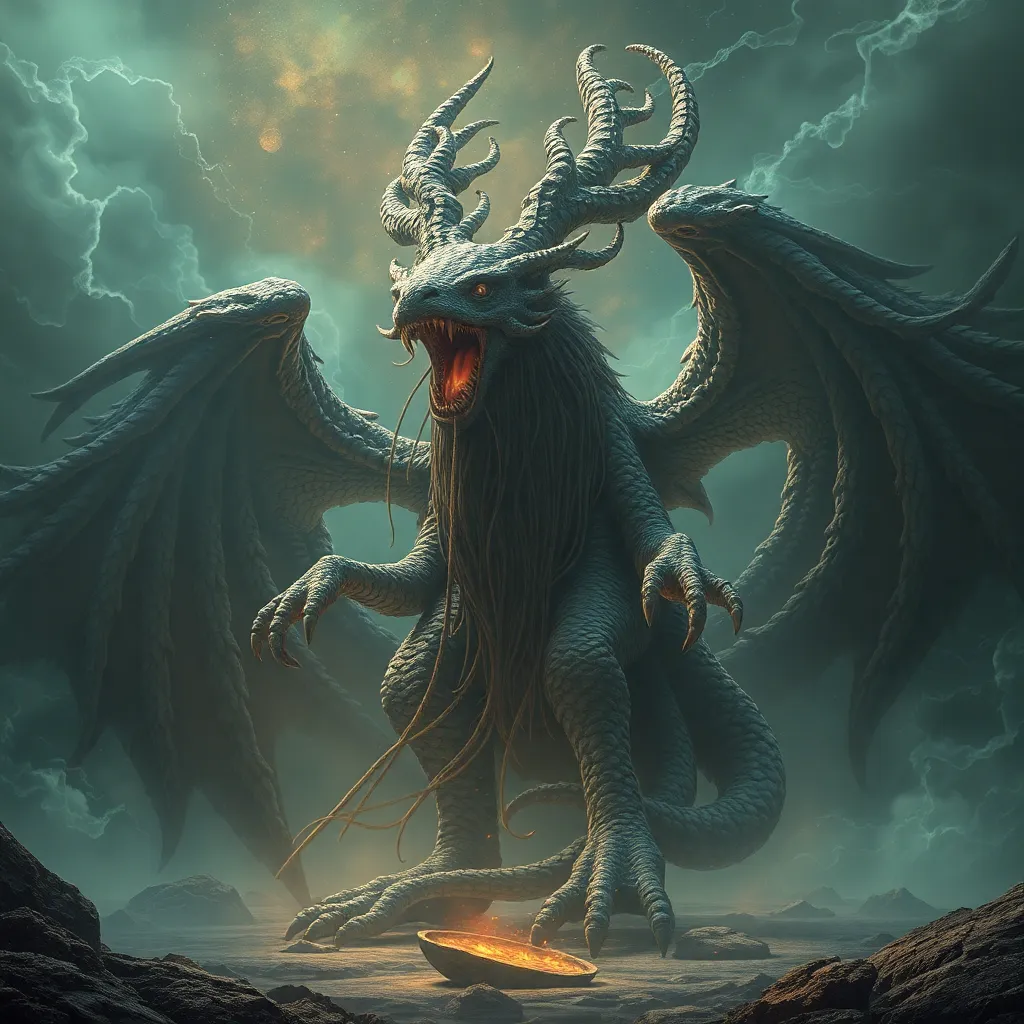The Great Mythological Showdown: Who Will Emerge Victorious?
Introduction to Mythological Showdowns
Throughout history, mythological figures have captivated the imagination of cultures around the globe. These characters, often embodying the values, fears, and aspirations of their societies, play significant roles in their respective mythologies. The concept of showdowns—epic battles between heroes and villains—is a recurring theme, illustrating the eternal struggle between good and evil.
Such showdowns serve not only as entertainment but also as vehicles for moral and ethical lessons, reflecting the complexities of human nature and society. As we delve into the world of mythological showdowns, we will explore the heroes, villains, settings, and the intricate dynamics that shape these legendary conflicts.
Understanding the Heroes: Profiles of Legendary Figures
Mythological heroes are often larger-than-life figures with extraordinary abilities and remarkable tales of bravery. Here are profiles of some of the most celebrated heroes:
- Hercules: Known for his incredible strength and twelve labors, Hercules represents perseverance and courage. However, his temper can sometimes be his downfall.
- Thor: The Norse god of thunder, Thor wields the mighty hammer Mjölnir. His strength and loyalty make him a formidable warrior, but his impulsive nature can lead to reckless decisions.
- Anansi: A trickster figure from African folklore, Anansi is known for his cunning and intelligence. While he often outsmarts his foes, his trickery can lead to unintended consequences.
These heroes, each with unique strengths and weaknesses, demonstrate the varied nature of heroism in mythology.
The Villains of Mythology: Chaos and Conflict
Every hero needs a villain to challenge them. Mythological antagonists are often embodiments of chaos and conflict. Here are a few notable villains:
- Loki: The trickster god from Norse mythology, Loki is known for his cunning and deceit. His motivations often revolve around chaos and testing the limits of his fellow gods.
- Medusa: A Gorgon from Greek mythology, Medusa possesses the power to turn anyone who gazes upon her into stone. Her tragic backstory adds depth to her character, making her a figure of both fear and sympathy.
- Set: In Egyptian mythology, Set represents chaos, storms, and disorder. His battles against Osiris and Horus highlight the conflict between order and chaos.
These villains not only challenge the heroes but also serve to illustrate deeper themes of conflict and morality.
The Setting of the Showdown: Mythological Realms
The backdrop for these epic confrontations is just as crucial as the characters themselves. Various mythological realms provide unique settings that influence the dynamics of battles:
- Olympus: The home of the Greek gods, Olympus is a realm of divine power and beauty, where the gods convene and make decisions that affect mortals.
- Asgard: In Norse mythology, Asgard is the stronghold of the Aesir gods, characterized by its fortified halls and warriors, setting the stage for epic conflicts.
- The Underworld: Many mythologies depict an underworld where souls reside after death. This dark and eerie setting often serves as a battleground for heroes seeking to rescue loved ones or confront their fears.
The characteristics of these realms can greatly impact the strategies and outcomes of mythological showdowns.
The Role of Fate and Prophecy in Mythological Conflicts
Fate and prophecy are pivotal elements in many mythological narratives, often dictating the actions and destinies of characters. For instance:
- In Greek mythology, the prophecy of Oedipus foretells his tragic fate, driving him to actions that ultimately fulfill the prophecy.
- In Norse mythology, the concept of Ragnarok signifies a foretold apocalypse that shapes the destinies of gods and mortals alike.
These examples illustrate how fate can alter the course of battles, making outcomes less about sheer strength and more about destiny.
Alliances and Rivalries: The Politics of Mythological Worlds
Mythological figures often navigate complex relationships that influence the outcomes of their conflicts. Alliances can provide strength, while rivalries can lead to unexpected betrayals:
- Alliances: The formation of alliances, such as the Olympian gods banding together against Titans, showcases the importance of cooperation in facing common foes.
- Rivalries: The enmity between gods like Hera and Zeus often leads to dramatic consequences, impacting their interactions with mortals and each other.
These political dynamics enrich the narratives of mythological conflicts, revealing the intricacies of relationships among deities and heroes.
The Impact of Culture on Mythological Showdowns
Different cultures portray their heroes and villains in diverse ways, often reflecting societal values and norms. For example:
- The heroic qualities of Hercules in Greek mythology emphasize physical strength and bravery.
- In contrast, the African trickster Anansi highlights intelligence and cunning as vital traits for overcoming adversity.
Such variations show how cultural contexts shape the interpretation of similar figures across different mythologies, enriching the global tapestry of mythological narratives.
The Audience: Who Do We Root For?
Human emotions play a significant role in shaping our preferences for certain characters. Audiences often gravitate towards:
- Heroes who embody ideals of bravery, sacrifice, and justice.
- Villains who offer complexity and depth, often eliciting sympathy despite their actions.
Storytelling techniques, such as character development and moral dilemmas, further enhance our emotional investment in these narratives, influencing who we root for.
Imagining the Showdown: Scenarios and Predictions
Hypothetical matchups between mythological figures spark the imagination and invite speculation:
- Hercules vs. Set: Hercules’ strength and valor could face a formidable challenge from Set’s chaotic powers, leading to an epic battle of brawn versus manipulation.
- Thor vs. Loki: A classic rivalry, this matchup would showcase Thor’s brute force against Loki’s cunning and trickery, resulting in a battle of wits and strength.
Such scenarios not only entertain but also encourage discussions about the nature of heroism and villainy.
Conclusion: The Enduring Legacy of Mythological Conflicts
Mythological showdowns continue to resonate in modern culture, reflecting timeless themes of conflict, morality, and the human experience. These narratives offer valuable lessons about courage, resilience, and the complexities of relationships.
As we explore these ancient tales, we find that the struggles of heroes and villains are not just relics of the past but reflections of our own lives and choices. The enduring legacy of these mythological conflicts reminds us that the battle between good and evil is a universal theme that transcends time and culture.




